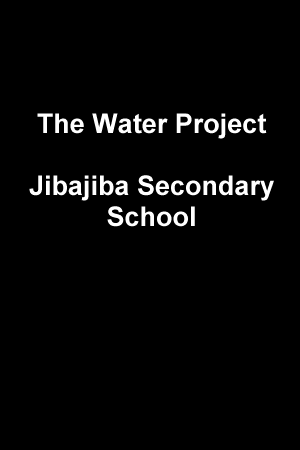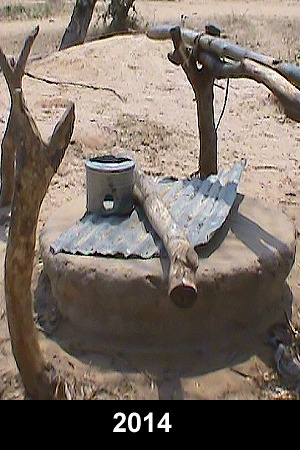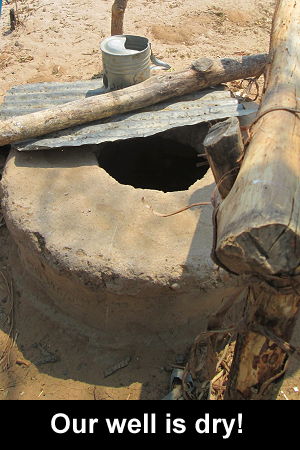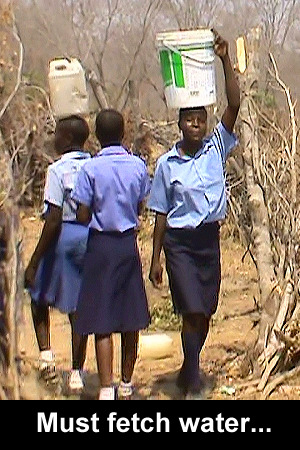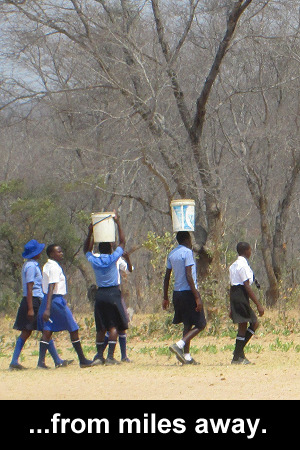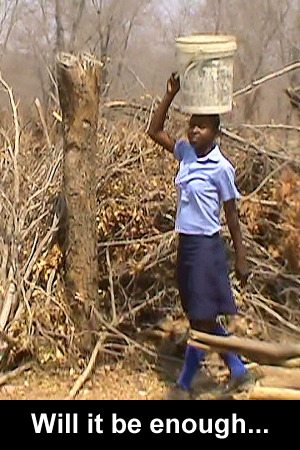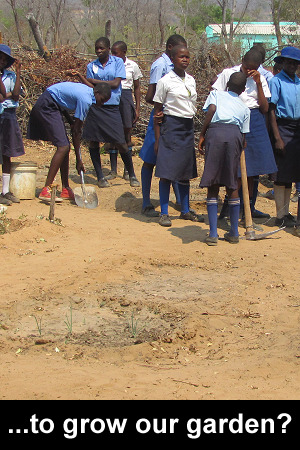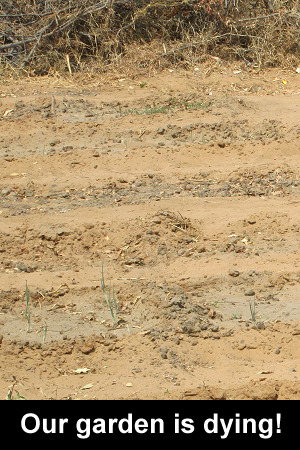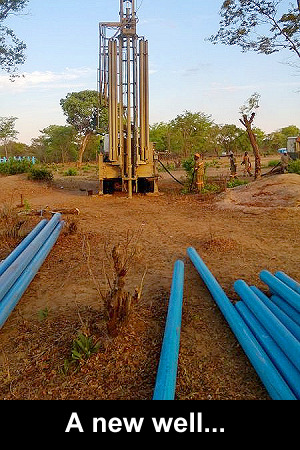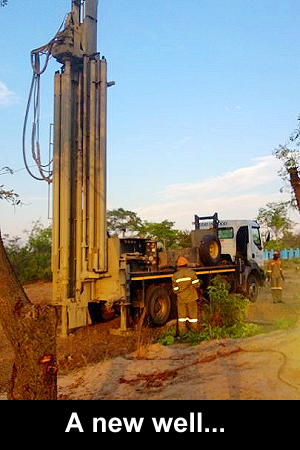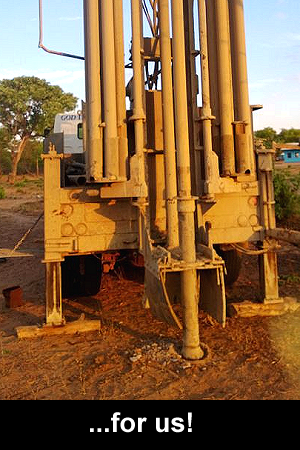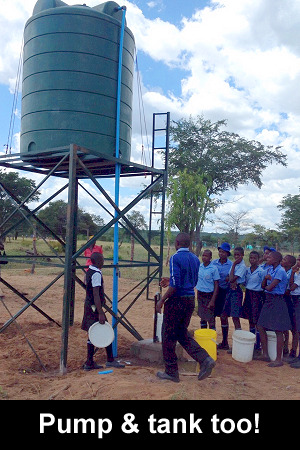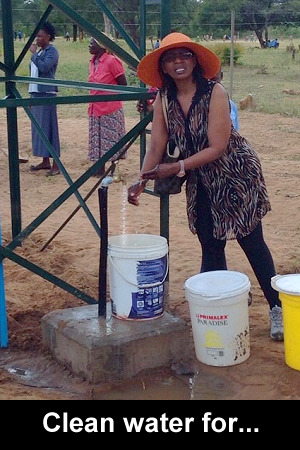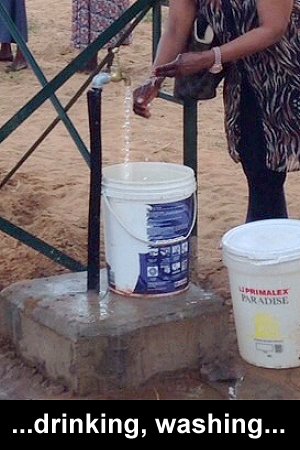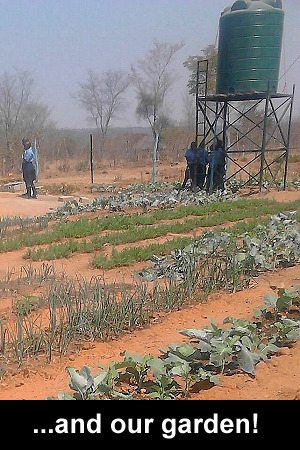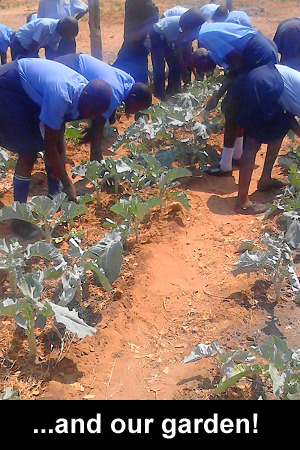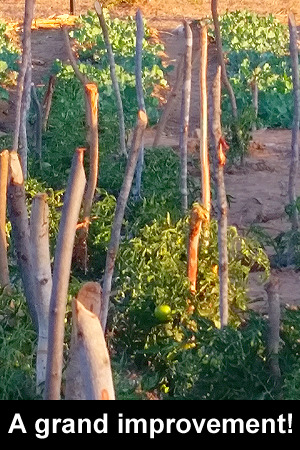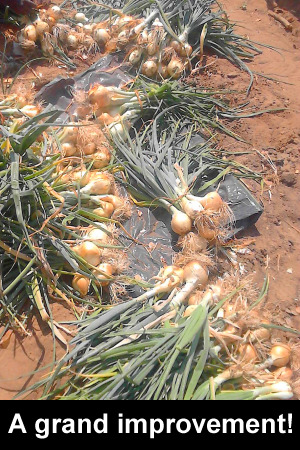Project Overview:
BAOBAB STRONG’s Water is Life projects provides urgently needed clean water by drilling new wells (boreholes) and installing water systems in the drought ridden western region of Zimbabwe. This project reduces health threats from waterborne diseases, and fights poverty by providing income-generating capabilities for rural families, schools and villagers.
The Problem:
Most people in rural western Zimbabwe lack employment and depend on the rainy season to support their subsistence farming endeavors and therefore provide for their families.
Unfortunately, droughts have become increasingly devastating, destroying fields and gardens, and killing livestock. Old hand-dug wells have dried up. Obtaining clean drinking water is difficult and requires walking long distances, often a chore of children, with the heavy burden of carrying the water from the source to the household. This limited access to clean water contributes to poverty and is life threatening.
The Solution:
Our solution is to locate land suitable for new wells, to drill boreholes and install pumps, tanks and solar panels for power.
With a fresh water supply, new gardening and farming projects become possible, which will more reliably provide nutritious food for the community. In times of abundance, surplus garden and farm products can be sold to generate much needed income. The availability of clean water is intricately linked to health, education, agriculture, and economic prosperity. It can literally be the difference between life and death.
Success from the Start:
The first Water is Life project took place in 2015 when BAOBAB STRONG installed a much needed well at Jibajiba Secondary School. That water system continues to provide clean water, benefiting not only the school but also the community. Since that time, we have received frequent requests for similar help, and have strived to provide clean water solutions where most needed.
Current Effort:
A Water is Life project is currently underway in a rural area near Lupane, Zimbabwe. A borehole has been drilled and a solar powered pump installed. A water tank and piping distribute the water locally, and to locations as far away as 6 km. Water has made it to the Bhanimpofu village! Construction continues on this project as funding allows.
This project will benefit teachers and students at the new Zamani Primary School, the Sibambene Village Healthcare workers, the Bhanimpofu Village, local families and everyone interested in participating in community farming projects. Any sales of garden produce will generate funds to sustain future maintenance costs, plus help support the Zamani School, healthcare workers, others in the community.
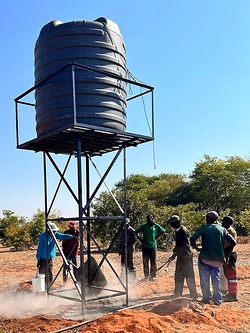
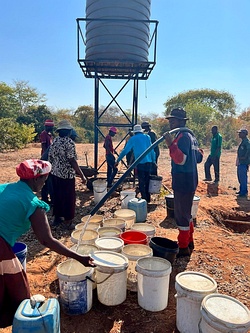
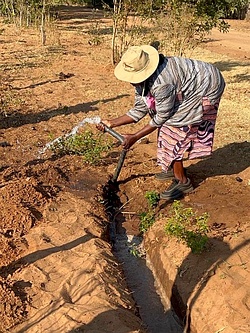
Current Goal:
This Zamani and Bhanimpofu Village water system is not yet complete. The initial water tank is temporary until one large enough (100,000 liters) for entire community can be obtained. Additional piping and water taps still need to be installed, as well as drinking troughs for farm animals. A complete water system typically costs a minimum of $10,000 US.
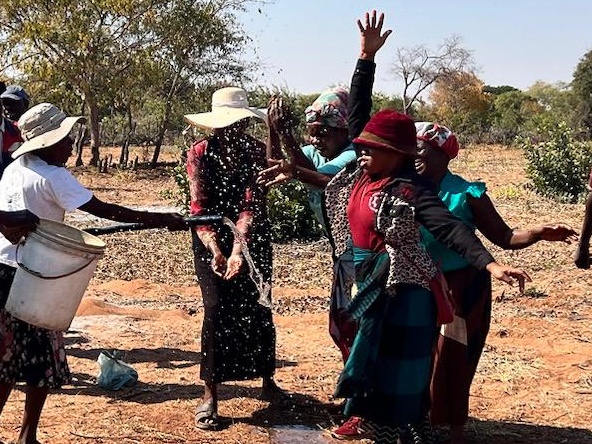
To finish this water project, and continue with the planned community gardening and farming projects, which the water makes possible, funding is urgently needed. As a donor, your support will make a significant impact, and immensely improve many peoples lives.
Importance
We believe that improving living conditions by modernization will help alleviate many burdens faced by impoverished people. Having access to safe drinking water, sanitation, and electricity has potential to dramatically improve lives. This is why our work includes projects to improve infrastructure.
Clean Water: Rural impoverished people may spend hours per day gathering water to sustain life. Children often spend time gathering water, instead of attending school. And too often the drinking water is contaminated, causing illness such as diarrhea. Clean water and soap are needed for washing hands and preventing spread of disease. Water scarcity also impacts food supplies, as insufficient water is available for cultivation of crops and water for livestock.
Sanitation: Alongside clean water, proper hygiene and disposal of waste is crucial for maintaining good health. Clean water and soap are needed for washing hands and preventing spread of disease. Water scarcity also impacts food supplies, as insufficient water is available for cultivation of crops and water for livestock.
Solar and renewable energy: Electric power is essential in the home for reading lights and refrigeration of food. Schools benefit by lights and computers. Clinics need power for diagnostic equipment and refrigeration of medications. Agriculture and other businesses may require electricity to be successful.
Goals & Current Projects
Clean Water: Just as true as energy, clean water is also a requirement for some of our other projects involving education, livelihood, and health.
Sanitation: As part of our health related programs, we offer solutions for proper sanitation, such as improving the availability of clean toilets. A full set of new toilets often complements our school building projects.
Solar and renewable energy: We’re finding energy solutions for the rural impoverished. Often this is a needed component for our other projects, such as new schools, and clinics.
Statements
On my visit to a school where BAOBAB STRONG is doing work, I witnessed the old hand-dug well the school had been using. The open well was essentially dry, so school children were forced to carry buckets of water from a river which is a few miles away, a far distance for drinking, washing, and gardening.
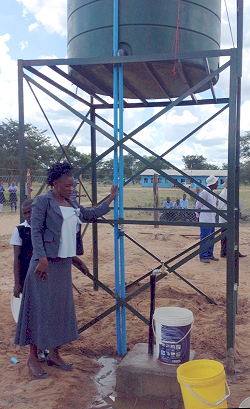
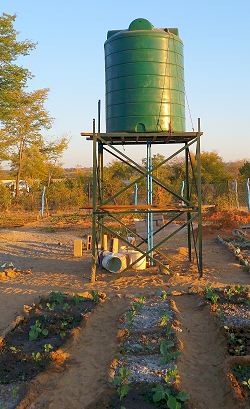
With the help of a grant, BAOBAB STRONG was able to have a new well drilled. This clean water will be a great asset to the school and enable the students to spend more time in the classroom, and help grow a school vegetable garden.
Gracious Nyati
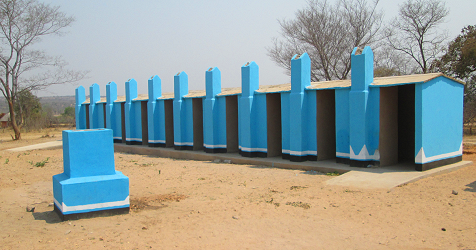
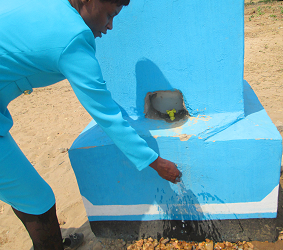
I was excited to visit a school under construction in Zimbabwe. The school was coming along well, but I was impressed by the new pit toilets. This is an area often overlooked and sometimes difficult to discuss. But these toilets were a major addition to the new school. The 10 stalls were very solidly constructed.
Outside, a hand washing station had been built too.
Every school should have such sanitary facilities!
Steven Kell













